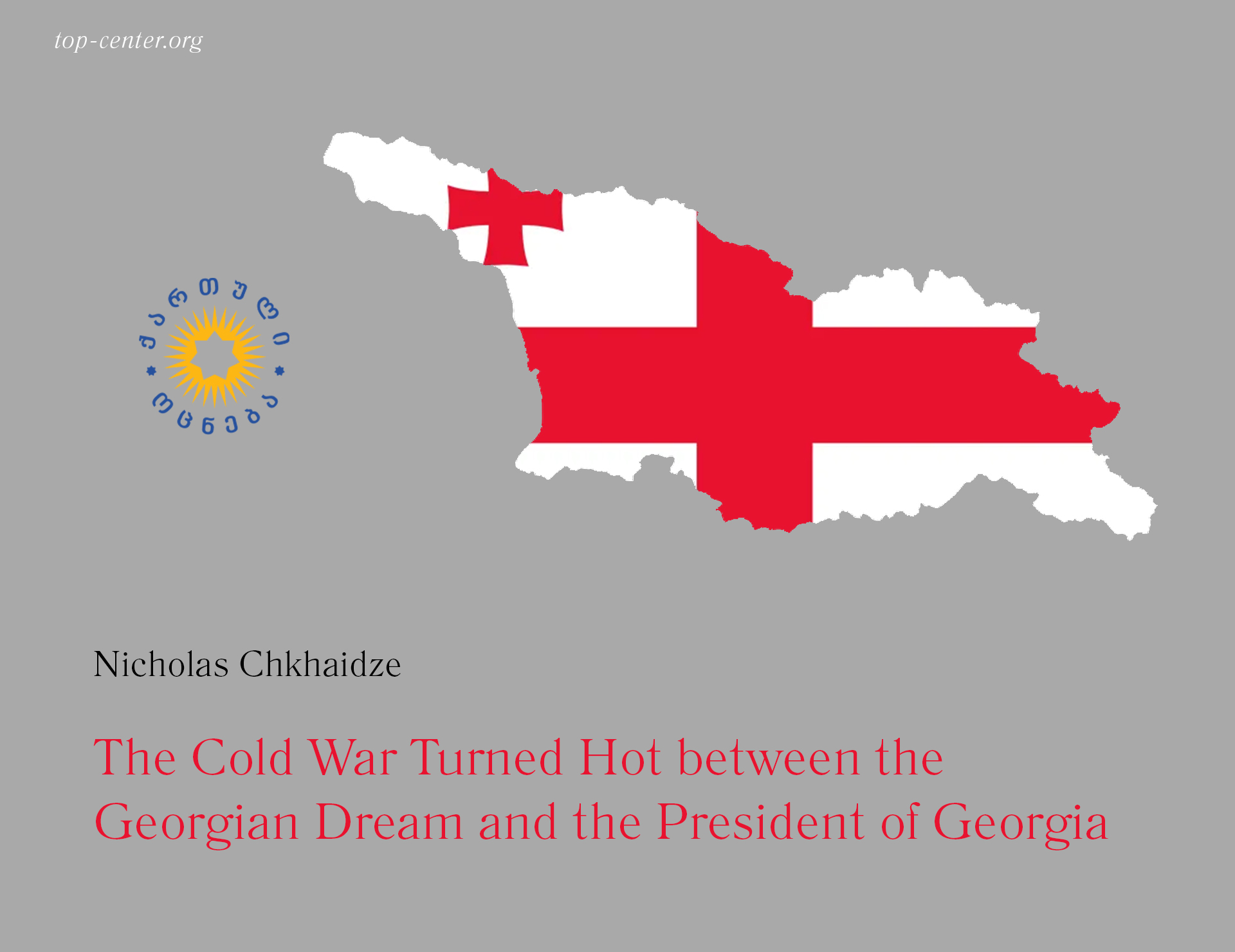The Cold War turned hot between Georgian Dream and Georgian President

The conflict between the President of Georgia, Salome Zurabishvili, and the leadership of the Georgian Dream has been an ongoing topic of discussion in Georgian politics, especially considering the recent dramatic developments and GD’s efforts to impeach the President for certain reasons.
On the day when Russia invaded Ukraine, on February 24th, 2022, the President of Georgia criticized the stance that the government had about Ukraine, saying that Georgia needed to express itself more vocally and be more in solidarity with both the Ukrainian government and its people.
Surprisingly, on February 28th, the government denied authorization for Zurabishvili to make trips in Europe, particularly in Paris and Brussels. There are certain reasons for that, as the President would try to “sabotage” the government’s calculation with Georgia’s partners in the West. The well-known calculation included “not to poke the bear” too much and employing the policy of neutrality, which in essence is considered to be “strategic silence to safeguard the national interests of Georgia and protect its citizens” as GD likes to state. The visits also coincided with the decision that Georgia would get later on in June 2022 by the EU about whether or not they’d receive the candidate status.
The government was in a way afraid of what Zurabishvili might have said about the Georgian Dream and the overall situation in Georgia, whether it be about domestic politics, corruption, or any other nuance, and since Zurabishvili has the necessary political capital and a certain reputation in the West, her messages can play a major part in deciding the outcome of political events in Georgia, as well as shaping the image of the Georgian Dream in the West. Furthermore, the President has gained significant autonomy, criticizing the Georgian Dream and questioning the role of Georgia’s informal ruler, Bidzina Ivanishvili.
The refusal to authorize the President’s trips to Europe is also caused by the President’s unwillingness to greenlight the appointments for Georgia’s MFA, particularly the candidates chosen by the Georgian Dream, even though she said that the appointments were accepted and authorized. GD keeps engaging in information warfare against the very President it supported back in the 2018 Presidential elections, who nowadays, according to the GD leadership, “is biased in favor of the radical opposition”.
Since President Zurabishvili’s conflict with the government, there have been many efforts by the GD to challenge and battle Zurabishvili in constitutional court, accusing her of being incompetent. There has been a back-and-forth battle for quite a while, but we witnessed an exacerbation of relations between these two sides in 2023, when Zurabishvili gave a speech in the Georgian parliament, questioning the GD and their real intentions, as well as morality about the situation in Ukraine. She asked them “Where do you stand today? Why have you drifted away from the will of the people, that are in full solidarity with Ukraine?”.
That speech came after the protest movement against the Foreign Agents Law (FAL). Zurabishvili was a harsh critic of FAL, and because of that, she received criticism from the Georgian Dream. Georgian Dream has been asserting that the EU's ethical guidelines were inconsistent with Georgian traditions and culture and failing to recognize the country's economic and democracy-building contributions by Brussels, the President slammed the ruling party.
On May 26th, on Georgia’s Independence Day, she delivered a speech where she once again expressed her dissatisfaction with the current policy of the Georgian government, and their efforts to sabotage the process of entering the EU. Her speech was met with slurs and phrases such as “traitor” by the GD representatives and MPs while she was delivering a speech. All of these vocal statements do have significant importance and influence, since in a Georgia that is fundamentally polarized politically, Zurabishvili is still among one of the most popular politicians domestically, with a rating of 48%.
This “cold war”, fundamentally became a hot war between the GD and Zurabishvili when she pardoned Mr. Nika Gvaramia, a former high-ranking official in the UNM government, and a former director of an opposition broadcasting company, Mtavari Arkhi. Gvaramia was placed in prison for trumped-up charges by the Georgian Dream government, and Zurabishvili’s decision to pardon him was a strategic move for two reasons, as it sends a message to the GD leadership, saying that she won’t be subdued. This decision will also reflect very positively on Georgia’s EU candidate status decision, pending at the end of this year, in terms of performing better in media safety and plurality environment.
Nowadays, the reason for the ongoing conflict between the GD and President Zurabishvili remains similar to what it was at the beginning, as the government has rejected authorizations for the President to conduct trips in Europe. Chairman of GD, Irakli Kobakhidze said that her efforts and trips are counterproductive to the whole process of achieving candidate status. However, she decided to make trips anyway, and because of that, we’re seeing that the GD is trying its utmost to impeach the President for going against the government’s directives, as according to the GD leadership, she is “going beyond the rights and executive authority she has as President of Georgia.”
Georgian Dream’s calculation in this scenario seems rather ambiguous. The Presidential election in 2024 will be fundamentally different from the previous ones. The President will be chosen by 150 MPs, not the people. It is in GD’s interest to have the president elected in the parliament, because they have the majority to do so at least until 2024, and they will be able to select the candidate best suitable to their interests. Now, if the President is impeached, the elections will be held in a similar fashion as previous ones, as the next President will be elected by the people, and therefore, the GD shouldn’t impeach her, if they aren’t so sure about their chances in the elections that follow.
In essence, the impeachment procedure now is only symbolic, since the execution of such a process requires a vast amount of time. The procedure won’t be over even by the time of the next Presidential elections. Therefore, this process will remain in a deadlock to demonize the very institution of the presidency and maintain the controversy around it. Most importantly, the very attempt to impeach the President will fundamentally undermine the process of EU accession and obtaining the candidate status. Looking at the actions of the Georgian Dream, one must ask themselves if these acts, that are driving Georgia away from the West, are done in a deliberate manner. Either way, the polarization is getting more intense as GD is taking a radical turn in politics.







